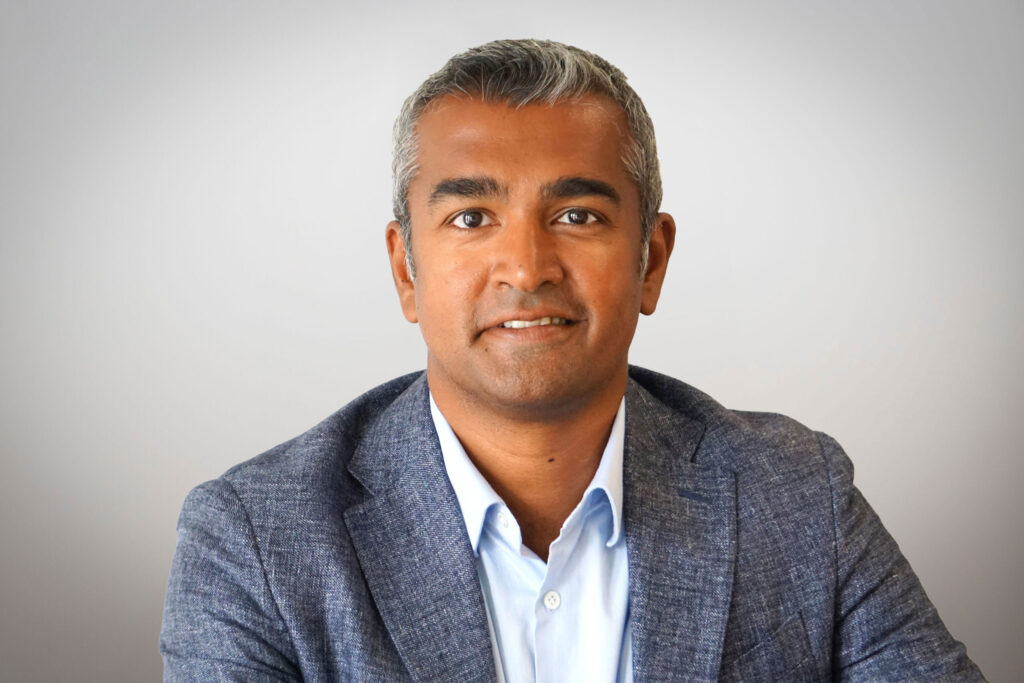Ravi Gurumurthy is the CEO of Nesta, the UK’s innovation agency. He started his career in a think tank, before moving into national and local government, a global NGO, and then to Nesta in 2019. I wanted to get his thoughts on what campaigners get wrong, how he thinks about getting policy unstuck, and how AI is going to change the policymaking process.
If you’re going to get large-scale change you often have to interact at different points of the system: investors, on the ground, and policy. That’s our theory of change at Nesta – it’s nice to be just actually doing it. One example is a direct partnership with a supermarket brand trying to figure out how they can make their stores more nutritious, and working with investors to align behind a single metric to push all stores to do that, and then working with government to mandate that metric.
We’re trying to be cognisant of all the bear traps around different debates and then work within those political constraints. So you don’t choose something that everyone understands can be politically weaponised, you choose something that may be a little bit more technocratic but can be a super effective mandatory target.
What annoys me sometimes is that people go to the first best solution. So, for example, the answer to climate change is that we should have a carbon price across the whole world that will drive investment into the most effective ways to reduce carbon. Of course, that’s the first best answer that an economist would come up with within three seconds. But it’s lazy to then say ‘unless they can do my first best answer, the politicians are just useless.’ There are usually third best solutions that are also good, that have a massive impact. The creativity is in thinking ‘What is a policy instrument that is also politically savvy?’
I don’t think think tanks have had as much influence as you might imagine. If I think about how many ideas really made their way from think tanks to government when I was in government, it was very very few. Once government has resources assigned and sets up good strategy units and policymaking operators, the degree of rigour and knowledge you can have inside is massively greater. It’s interesting to compare UK think tanks with think tanks in America which are obviously much better funded. It’s more of a domain where people are zigzagging in and out. So you leave government, you go back to think tanks, you stick around there, and then you go back in because you’ve got that greater interchange with the civil service. They are more robust.
Get policy insights into your inbox
NewsletterAlthough I wasn’t in local government very long, it was hugely useful to understand how ideas translate into local government and delivery. We should have a single Civil Service that includes central and local governments – it shouldn’t be two separate things. In order to progress in the Civil Service, you ought to have to move in and out at some point between central government and local government. That would be the single most beneficial thing, both for central government policymaking to make it more empathetic, delivery-focused, and actually understand the real constraints, but also for improving and helping local government. But it’s really hard to do.
For NGOs, there’s a danger of focusing on low impact activities like responding to consultations or engaging a lot with Parliament. You can feel very active doing things that are not going to really make much of a difference. You’ve either got to go one route or the other: you’ve either got to go through an insiders game and go, ‘Where does power lie? Who are the people who are actually going to be influential?’ and get to those individuals with a great idea. Or you’ve got to go the outside route and actually be coercive and have enough volume to your campaigns such that people have to take notice. It’s quite easy to end up with neither one thing nor the other.
You could imagine the way in which public services innovate being radically different in an AI world. So, for instance, you can already identify which are the best teachers of deprived pupils. What you can’t then do is look at what they are doing in the classroom to achieve that. As it happens, during Covid we were videoing all their lessons. So you could use that natural language processing to capture what teachers were doing in the classroom and then identify associations between teachers that do X and outcome Y. You’d then want to test that more rigorously before scaling. I think you could see scouring for positive deviance, constant AB testing and diffusion being the way in which we run our public services.
You want to be able to reverse engineer policy from practice. You want to say ‘Hey we figured out a really cool way of doing X. What policy, funding or regulatory change might now enable that to go to scale?’ Whereas I think sometimes the weakness of policymakers is thinking you’re going to legislate for something but without knowing the answer – you really need to figure it out in practice first.
Parting thoughts…
I loved working in central government because you can achieve large scale change, but you feel very divorced from practice. Often you write legislation, you create funding instruments, but then you’re very distant from real life. When you go and work in local government or in the humanitarian sector, you’re very involved in specific programs helping people on the ground. But you also get frustrated at the limitations. So I’ve always felt like oscillating between working practically in local government versus working in the policy space. Nesta is a cool intermediate thing where you can have useful policy influence, but you’re sufficiently connected on the ground. As for staying sane… tennis, singing, and Liverpool Football Club.
Sign up to our newsletter to get insights from other policy thinkers and campaigners like Ravi into your inbox every week or two.





